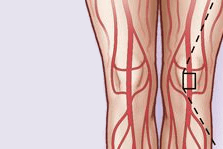 The Society for Vascular Surgery (SVS) and the Society for Vascular Nursing (SVN) have issued a statement encouraging vascular surgery teams to actively assist smokers with smoking cessation before surgery.
The Society for Vascular Surgery (SVS) and the Society for Vascular Nursing (SVN) have issued a statement encouraging vascular surgery teams to actively assist smokers with smoking cessation before surgery.
The reasons given by the society are two-fold. According to the organisations:
1. Impending surgery provides many patients with a “teachable moment” when they are more receptive to stopping a bad habit.
2. The evidence is strong that surgery patients have better outcomes and better survival rates if they are non-smokers or have quit, even for just a short time. Because of the effect of cigarette smoking on the body’s vascular system, non-smokers are more likely to survive surgery than smokers, to need fewer interventions to regain their health and to have a shorter recovery time.
Studies show that patients who quit or do not smoke have a much lower risk of wound complications than those who smoke, and their time on a ventilator can be half as long after surgery.
The SVS and SVN encourage surgical teams to develop staff processes to work with smokers to help them quit before surgery. This assistance could involve referrals to smoking cessation clinics or the use of trained nursing staff. Patients could be provided prescriptions for smoking cessation, advice about nicotine patches and information about smoking cessation hotlines, support groups or some combination of assistance. In the pilot VAPOR trial, supported by an SVS grant, options that were customised to the patient’s needs worked best. Many published studies have recommendations for smoking cessation processes and products.
“We need to find the best ways to help our patients quit smoking before surgery,” says R Clement Darling, president-elect of the SVS. “Given how important quitting smoking can be for our patients and the vascular care we provide, the SVS believes that vascular surgeons have a unique and important responsibility to patients to provide smoking cessation assistance before surgery.
“Whether we are providing office-based care in the clinic or invasive care in the inpatient setting, we should encourage our patients to quit. This also means supporting these efforts through referrals to local smoking cessation resources, as well as free, federally supported smoking cessation quit lines such as 800-QUIT NOW. It is up to us to act.”
“Ensuring that every vascular surgery patient has access to cessation assistance is an important role for surgical support teams,” says Marie Rossi, president of the SVN. “Our organisation joins the SVS in urging all surgical teams to develop processes to ensure that patients have the best chance at healthy outcomes.”













